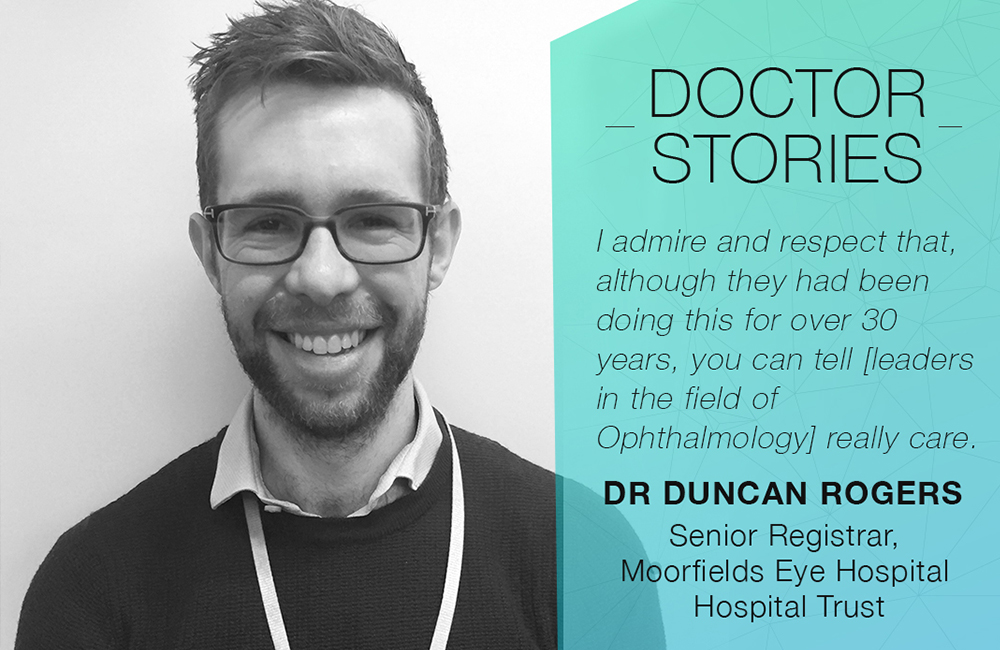Meet Dr Duncan Rogers, one of the medical specialists who contributes to the knowledge within DemDx.
Why did you choose medicine as a career?
I did surprisingly well in my GCSEs despite having dyslexia. People started asking me what I wanted to study later on and without any real thought, I answered medicine. I liked the idea of spending my life talking to people and potentially helping them. No other family members were medics but they were very positive, my parents have always supported me and said that ‘as long as I was happy and it was something that inspired me, they would support me’; it could have been medicine, art, writer or anything else. The fact that it was a medicine did make it quite easy for them to get behind!
How did you come about selecting your speciality?
I went to Nottingham University. I chose it as it was part of the Russell Group and I liked the campus. I also liked that you could do an extra degree in Bachelor of Science and the MBBS without adding an extra year of training.
It took me a while to choose my speciality. Initially I thought I wanted to do surgery. I had probably glamorised it from watching ER and other medical series. When I started actually doing some surgery as a foundation doctor, I realised that although it was technically complicated it was less challenging from an intellectual perspective (sorry surgeons!).
I enjoyed most things in my core medical training so decided to prioritise around work life balance, choosing a speciality that did not involve the acute medical rota. I interviewed for both HIV specialist and Medical Ophthalmology, came top of the country for both with my first choice location at St Thomas, chose Ophthalmology and have loved it ever since.
What is a memorable moment in your career?
I don’t have one single moment but several. One of them was doing the ward rounds with Prof Stanford and Dr Gordon Plant, both great leaders in the field, just seeing them taking a history and examining patients, seeing how they think and how they work. They could sometimes ask just two key questions to get to a diagnosis and you would ask yourself; “ how did I not get this?, how did I not think about that?!. Their ability to distil over 30 years of clinical knowledge, how they structure their thinking and bring to bear their experience on diagnosis or when and how to decide treatment it deeply impress to observe. I admire and respect that though they had been doing this for over 30 yrs, you can tell they really care. That is rather special and is inspirational to be around.





